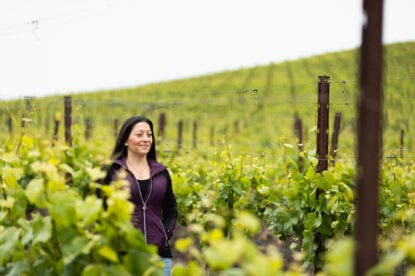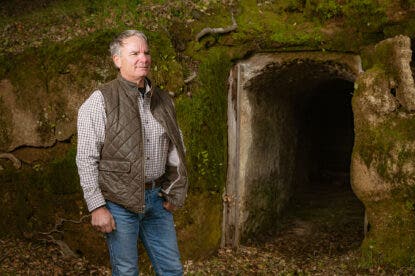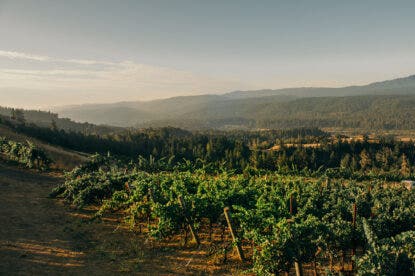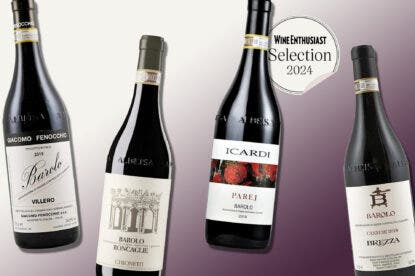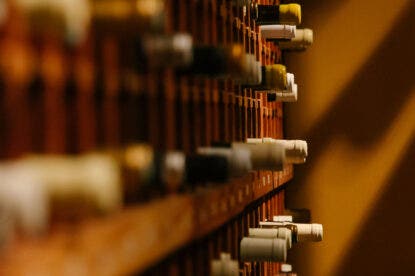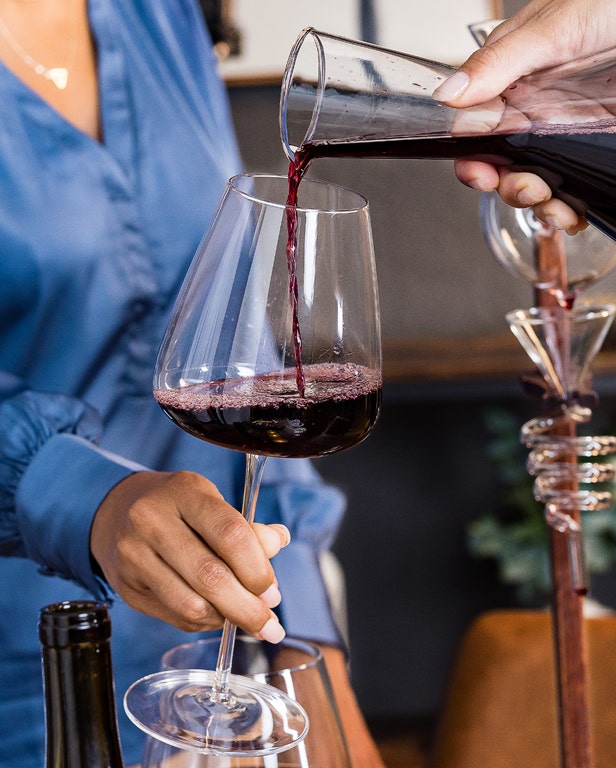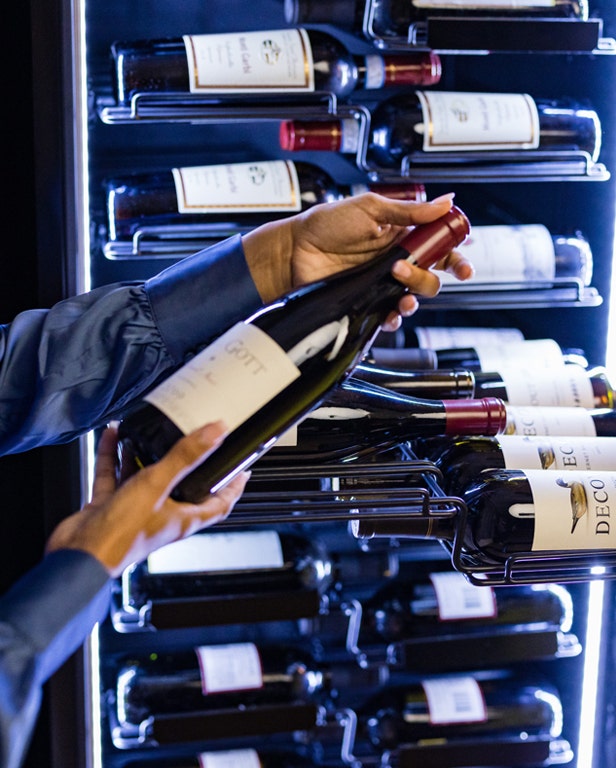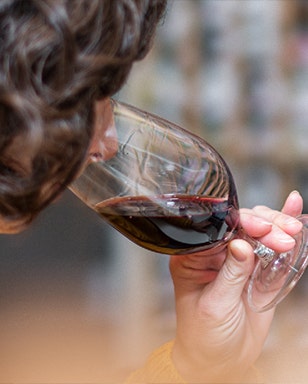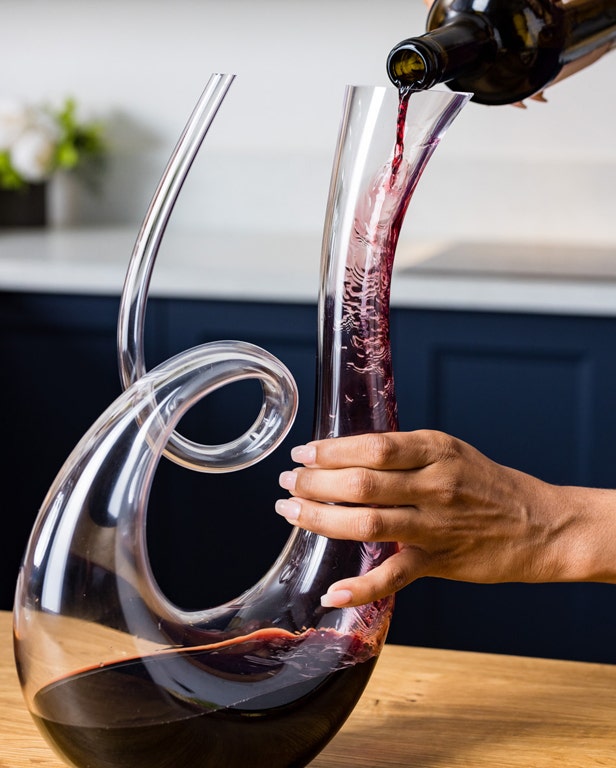Megan Bell, winemaker at Margins Wine, is frustrated by the term “natural wine.”
While there’s no official U.S. designation, it generally refers to wines made without chemicals, flavoring or coloring agents, as well as no added sugars or acids, fining or filtration. Many believe that natural wines should be made without additional sulfur or temperature-controlling agents like dry ice, though others make exceptions for those practices. Despite such porous parameters, Bell finds the term exclusionary.
At events like RAW Wine Fair, participants must have used all organic or biodynamic agriculture, have less than 70 milligrams per liter (mg/L) sulfites, and can’t use additives or sterile filtration.
“I think these kinds of technicalities are a huge bummer for winemakers if it means that they are barred from getting to be part of certain wine fairs and having their wines sold at certain wine shops because they added some sulfites,” says Bell.
She uses the term “low intervention” to describe her winemaking practices.
“It takes about 10 seconds to mix a tiny bit of KMBS [potassium metabisulfite] powder into water, which then becomes ‘sulfites,’ which I add to my wines the week before bottling,” she says. “So, all of the organic farming, hand harvesting, sulfite-free fermentation and elevage, and every single other task I’ve done over a six-plus month period to make the wine naturally up to that point is now moot because of something that took 10 seconds to do? I don’t think so.”
Lee Campbell, sommelier and ambassador for Early Mountain Vineyards in Virginia, also finds such strict attitudes problematic.
Virginia has a long winemaking history, however it has never been easy. Because of the state’s cold weather, fungus, black rot and high levels of humidity, it’s difficult for winemakers to follow the strict approach to producing natural wine. Producers might have to use pesticides here and there in order to come out of a season with any grapes at all. But even using a non-organic pesticide one time disqualifies them from the natural wine conversation.
“I’m not really interested in getting so caught up in dogma that I can’t allow Virginia in, or winemakers of color who don’t have the same resources or the same access [to the wine industry],” says Campbell.
“‘Oh, you carry this nice rosé, but because it’s not organic? I’m not going to put it on my list.’ That’s not where I’m at.”
Campbell says the wine community would benefit from fluidity around the natural wine movement.
“I think there’s space to say, ‘I like where this person is going. I like where this person would like to go,’” she says.
There are written references to natural wine as far back as 1731, but in the latter half of the 20th century, the term was used to describe a movement of ecologically minded winemakers. It helped them band together, take a stand against the use of chemicals and encourage others to convert to organic agriculture and minimal-intervention practices.
Today, however, professionals like Campbell and Bell say the term can exclude winemakers who cannot commit to “zero-zero” standards, a term that signifies that nothing was added nor removed from wine on its voyage from the vineyard to the cellar.
Not all winemakers can jump right into organic or biodynamic agriculture, use only wild yeast for fermentation and not add sulfur to stabilize their wines, they claim. Each region has its own climactic difficulties, and winemakers often buy grapes from individual growers.
For those winemakers and others, a transition to minimal-intervention or “natural” winemaking is a process. Such barriers can do more to exclude them than to preserve the natural wine vision.
“I think it’s important that big, sweeping statements like, ‘I only drink natural wine,’ are examined more closely,” says Susan E. Ulbrich, wine director at The Cheese Shop of Salem. “By only supporting something that has a trendy name can prevent one from enjoying a really fabulous wine from a dedicated winemaker who may not necessarily be a ‘natural’ winemaker at the end of the day.”
Lauren Hayes, wine director at Cambridge-based Pammy’s, appreciates what “natural wine” has done for sustainable practices and getting more people into wine.
“I’m thrilled to live in a time where ‘natural’ has become an annoying word,” she says. “Sure, I am frustrated with the dogma, I don’t think selected yeasts are the enemy, nor do I think it’s right to chastise a winemaker who fined a wine one vintage or performed a mildew treatment because they thought they had to. My job is to educate, to be honest and to buy good wine.”
The 69% of U.S. consumers who claim to be interested in paying more for sustainably made products might appreciate such honesty. And to swap a term like “natural wine” for “minimal intervention” could place the focus on processes and create a more inclusive marketplace for traditional and “natural” wines alike.
“Natural has a preachy side, like any school of thought,” says Hayes. “It doesn’t mean we should abandon it.”
Last Updated: May 8, 2023





